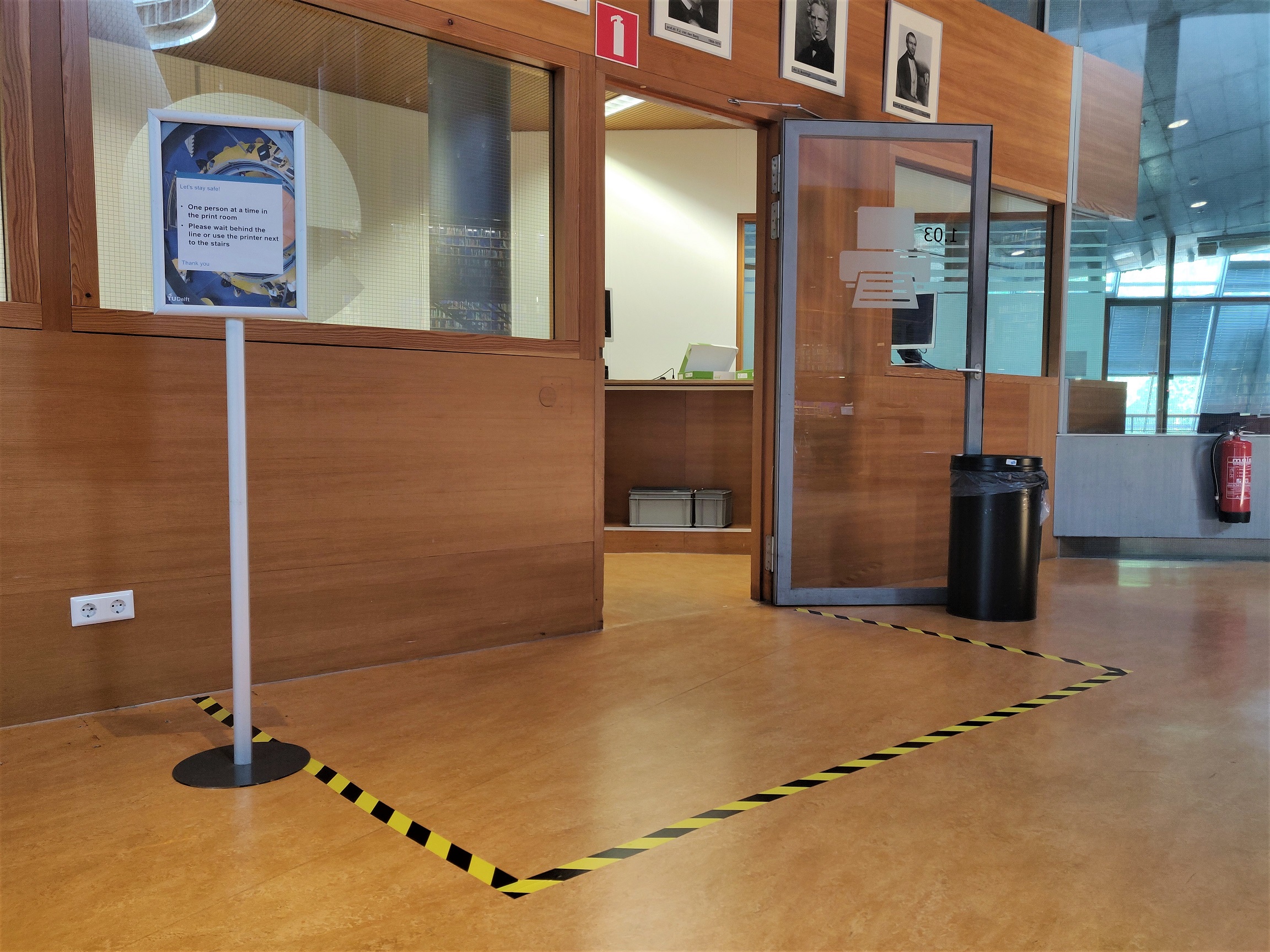How should TU Delft best reopen as a one-and-a-half metre university? Five taskforces are thinking about solutions and are prioritising the new first year students.
The TU Delft Library has already taken measures to enable keeping a distance of one and a half metres. (Photo: Marjolein van der Veldt)
TPM and the Faculty of Architecture and the Built Environment are completely closed and the other faculties are only open at certain times for ongoing research or lab work. The Library and X are closed, as are all the food and drink outlets. Anyone coming to campus will find a deserted and lifeless place, despite some easing of restrictions in daily life. When can teaching start again, even in part, and for which students? When can more staff come back?
There is currently still so much uncertainty. Will Prime Minister Rutte clarify when universities can open again next week? Nobody knows.
At home part of the time
Until more is known about the future, there is enough to think about: how can you best design a one-and-a-half metre university? What solutions are needed in the short and long term if TU Delft is to reopen, at least in part? Five taskforces, each headed by a dean, are looking for answers. The groups are divided as follows.
- Work and welfare, (Ena Voûte, Dean of IDE)
- Students and welfare (Dick van Gameren, Arch)
- Educational quality and design (Aukje Hassoldt, TPM)
- Building management and facilities (Lucas van Vliet, AS)
- Economic activities, research funding and third party agreements (Jan Dirk Jansen, CEG)
Rector Magnificus Tim van der Hagen explains in a video (below) that TU Delft intends to be well prepared and able to hit the road running as soon as the Government grants universities more space. Two working groups are looking into how staff and students can get back to work and study in a ‘healthy and pleasant’ way. It will “Probably involve being at home for part of the time,” says Van der Hagen. Two other working groups are looking at organising timetables, lectures, exams and laboratory courses, and the effects of these on the campus.
Priority to first year students
The last working group is developing scenario’s for funding from the Dutch Government, from Brussels, industry and tuition fees. “These revenue flows could change in the coming period,” says Van der Hagen. Apart from the five working groups there is also a ‘coordination team’ chaired by 3mE Dean Theun Baller to ensure coherence among the possible measures.
Further, much consideration is given to new students. Van der Hagen explains that “We want to give priority to our first year students who have no experience in studying at university, who don’t know either TU Delft or the city, and who have not yet formed a group of friends.” He has much ‘admiration and respect’ for the current students and staff and how they have continued their studies and work under such challenging circumstances. “This shows the resilience of our community. Together, we can handle this.”
Do you have a question or comment about this article?
s.m.bonger@tudelft.nl


Comments are closed.